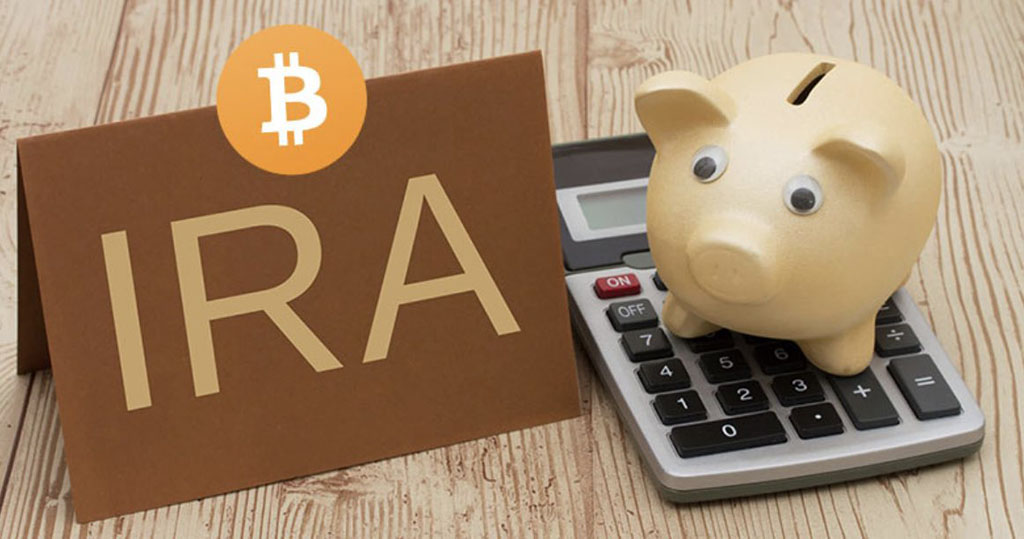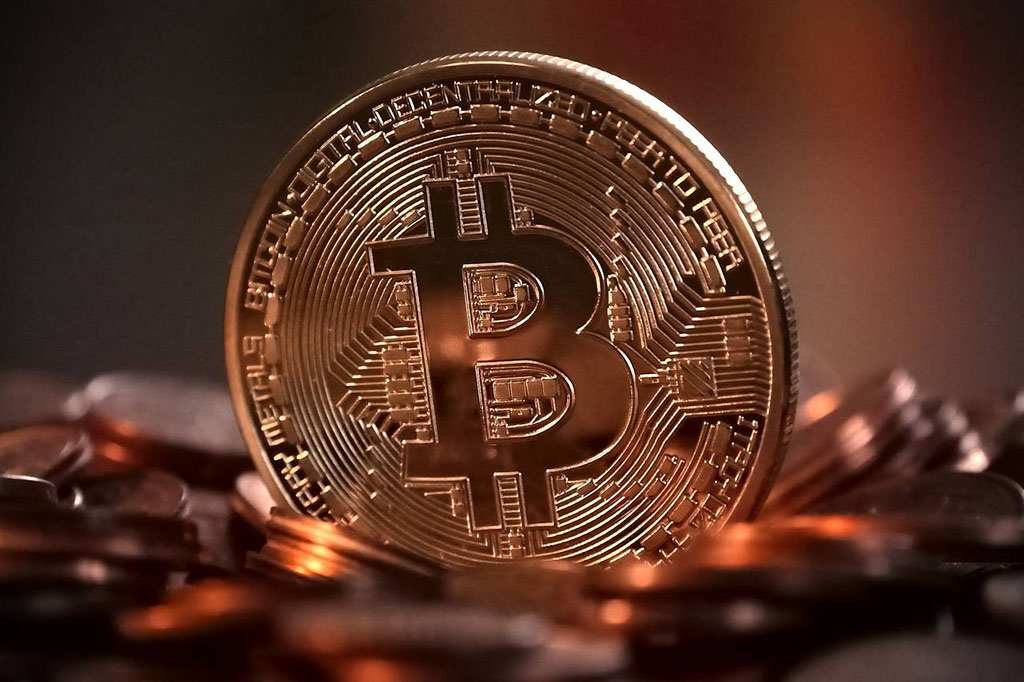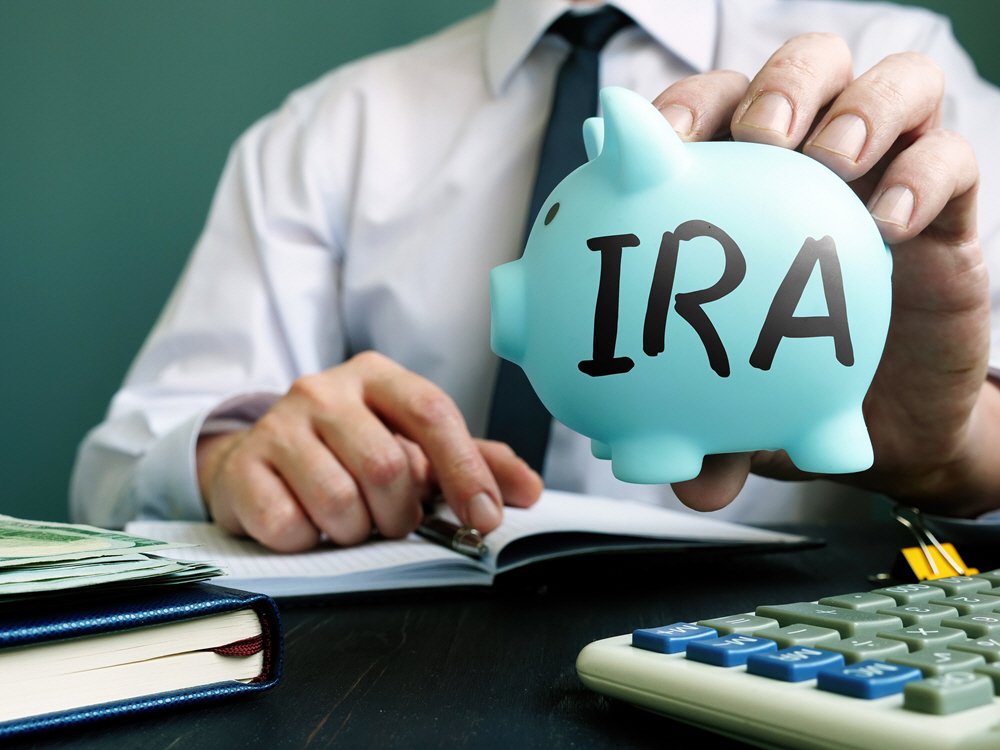
The Pros and Cons of Investing in Bitcoin IRA Companies
Posts by Colin TanMarch 12, 2024
Due to the volatile price swing of bitcoin, it may not be a suitable retirement investment. However, some financial service providers present options of investing via self-directed IRA (Individual Retirement Account). As of March 2020, an early provider of this service claimed to process four hundred million dollars in bitcoin retirement investments.
Without a doubt, bitcoin is digital gold, but is it worth adding to a retirement account? In this article, we will discuss the advantages and disadvantages of this type of investment.
What Is a Bitcoin Individual Retirement Account?
There isn’t a specific IRS (Internal Revenue Service) account dedicated to cryptocurrencies. Hence, investors refer to bitcoin IRA when they are talking about a retirement account that contains bitcoin or any other digital currency in the portfolio of holding.
Since 2014, if your retirement account contains digital coins, IRS considers them as property. This means that you will pay tax on them just like bonds and stocks. Therefore, if you hold a retirement account and you plan to add digital tokens to your account, ensure you enlist the assistance of a reliable custodian.
Many investors find it difficult to get a custodian who accepts cryptocurrency as part of the IRA portfolio. Fortunately, a self-directed individual retirement account allows investors to add alternative assets such as cryptocurrencies. In recent times, companies and custodians that help investors add digital currencies to their accounts have become popular. Some early players in this field include Bitcoin IRA, BitIRA, and Equity Trust.
Advantages of Investing in Bitcoin Individual Retirement Account

Adding altcoin holdings to your retirement portfolio adds diversification to it. It helps to protect your account in case there is a tumultuous event like a huge market downturn in the future.
Apart from diversification, investors who add bitcoin to their holdings have the mindset that digital currencies will become increasingly popular and more accessible in the future. And with this long-term vision, an IRA is an excellent instrument for an investment that holds significant potential on a scale of centuries. However, cryptocurrency detractors might argue that digital tokens like bitcoin will at best, remain unproven, or at worst, remain unstable and volatile.
Furthermore, people who intend to invest in cryptocurrency may possibly avoid huge taxes on capital gains when they include it in some types of IRAs. But there are fees you may consider here. However, you may want to read this article to learn more about this investment option.
Disadvantages of Investing in Bitcoin IRA

The extreme volatility of bitcoin in recent times stands as a major drawback when adding it as an IRA holding. The coin routinely experiences major price fluctuations. Its price plummeted after hitting a record of about $16000 on each bitcoin in 2017. Although it recovered around 2019, as of June 2020, the price has remained at about half of its record value.
In a worst-case scenario, pessimists are more likely to argue that there is the hype surrounding cryptocurrencies. They regard it as a revolutionary currency in a new form that is dramatically exaggerated. One decade after its first introduction, bitcoin is yet to supplant fiat currencies. It is also difficult for many people to utilize it in conducting daily businesses.
Another major disadvantage of adding bitcoin to your IRA is its fees. Trading digital currencies via IRA is not the same as normal stock trading. It is also different from cryptocurrency exchanges as they aren’t custodians.
Although you will benefit from the free taxation, it comes at a price – heavy risk and fees. Firms that offer self-directed individual retirement accounts do not use brokers. Therefore, investors should be ready to assess and accept the risk associated with the crypto market.
The fees attached to trading cryptocurrency take various forms in the investment stage. They include custody, initial set up, trading, and yearly maintenance fees. Let’s say you want to set up a self-directed retirement account worth $40,000, you may spend up to $5,000 as fees for the initial setup. And this varies from one provider to another.
You will also encounter recurring maintenance and custody fees that each provider charges for such services. Additionally, every cryptocurrency trade incurs some fees from custodians and the trading partners of the service providers. Providers may charge about 3.5 percent for each transaction and 1 percent or a flat price per sale.
Furthermore, you must also consider that withdrawing prematurely may attract taxation at the capital gains rate. To sum up, these fees may negate the taxation advantages that come with an IRA account. You can click on https://vocal.media/theChain/investment-in-bitcoin-ir-as-know-the-advantages-and-disadvantages to know what factors you should consider before investing.
Special Considerations

Bitcoin has unique requirements like custody and security. When offered via an IRA, the fees for such services are bumped up. Also, IRA custodians who work with cryptocurrencies must be ready to accept extra reporting responsibilities with the Internal Revenue Service. This may translate to more fees on the part of the investors.
Meanwhile, some service providers now offer incentives to individuals so they can go into cryptocurrencies. Companies like BitIRA and Bitcoin IRA are offering discounts to their customers as a way of promoting their services. However, even with the discount, there is a potential of going into a space that is volatile and filled with scams. It is also entirely at the risk of the investor, and this may not make it an attractive venture for many investors.
Conclusion
Adding cryptocurrency to your IRA holding is beneficial, but it also comes with its drawbacks such as huge processing, custodian, and maintenance fees. However, with great risk comes great reward. Ensure you assess the market properly before investing and be willing to accept the risks.
